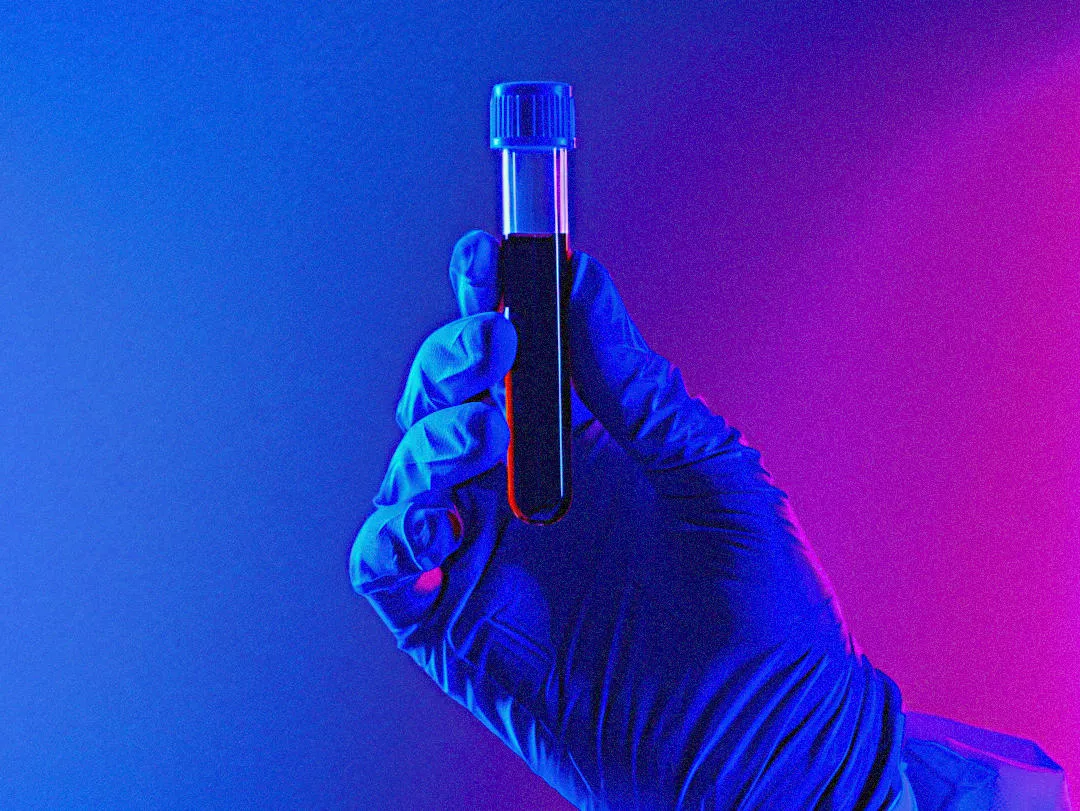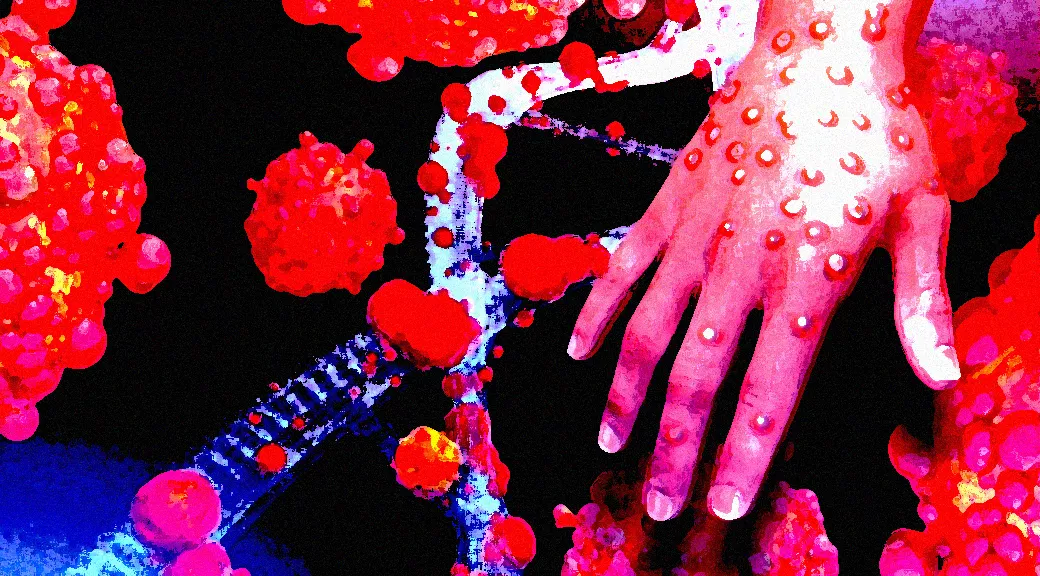Monkeypox (Mpox) Testing in Thailand: Bangkok, Pattaya, Phuket, Chiang Mai, and Koh Samui
1532
Accessible Monkeypox (Mpox) testing services in In Thailand, Bangkok, Pattaya, Phuket, Chiang Mai, and Koh Samui

Monkeypox (Mpox) Testing in Thailand: Bangkok, Pattaya, Phuket, Chiang Mai, and Koh Samui
As Mpox continues to be a global concern, timely and reliable testing is essential to maintain public health and safety. In Thailand, Bangkok, Pattaya, Phuket, Chiang Mai, and Koh Samui are leading the way in providing accessible Mpox testing services in our clinics.
Price for Mpox Testing at PULSE Clinic
| Type of Test | Specimen | Cost (THB) |
|---|---|---|
| MPOX RT-PCR (2 Days) | Swab (Lesion) | 5,950 |
| MPOX RT-PCR (Same Day) | Swab (Lesion) | 8,450 |
| MPOX RT-PCR + 5 Viral Pathogens (Same Day) | Swab (Lesion, Genital, Throat), Blood, Urine | 8,950 |
Similar Signs and Symptoms of Mpox Versus Other STDs
Mpox shares several symptoms with other sexually transmitted diseases (STDs), making it important to differentiate between them:
| Symptom | Mpox | Other STDs |
|---|---|---|
| Rash | Yes | Yes (e.g., Syphilis, Herpes) |
| Fever | Yes | Yes (e.g., Syphilis, Gonorrhea) |
| Swollen Lymph Nodes | Yes | Yes (e.g., Syphilis, HIV) |
| Fatigue | Yes | Yes (e.g., HIV, Herpes) |
| Muscle Aches | Yes | Yes (e.g., Syphilis, HIV) |
| Sore Throat | Yes | Yes (e.g., Gonorrhea, Chlamydia) |
| Headache | Yes | Yes (e.g., syphilis, HIV) |
| Painful Lesions | Yes | Yes (e.g., herpes, syphilis) |
Book Your Appointment Today!
Contact us at info.bkk@pulse-clinic.com or chat on your preferred platform:
![]() +66 65 237 1936
+66 65 237 1936  @PULSEClinic
@PULSEClinic ![]() PulseClinic
PulseClinic
When Do the Symptoms Appear?
Symptoms of Mpox typically appear within 3 to 17 days after exposure to the virus. The incubation period can vary, and some people may not show symptoms immediately. During this time, a person may feel fine but can still spread the virus
Symptoms of Mpox
Common symptoms of Mpox include:
- Rash: Often starts on the face and spreads to other parts of the body.
- Fever: A high temperature is common.
- Swollen Lymph Nodes: Lymph nodes may become enlarged.
- Fatigue: Feeling extremely tired.
- Muscle Aches: Pain in muscles and back.
- Headache: Persistent headaches.
- Sore Throat: Pain or irritation in the throat.
- Respiratory Symptoms: Such as nasal congestion or cough.
Why is Mpox Testing Essential?
Mpox testing is crucial for several reasons:
- Early Detection: Identifying Mpox early helps in managing symptoms effectively and preventing complications.
- Preventing Spread: Knowing if you have Mpox allows you to take precautions to avoid spreading it to others.
- High-Risk Groups: Certain groups, such as children, pregnant women, and immunocompromised individuals, are at higher risk of severe complications.
- Public Health: Testing helps in tracking and controlling outbreaks, which is vital for public health efforts
What To Do If You Test Positive For Monkeypox
If you receive a positive monkeypox test result, it's crucial to take swift action to safeguard yourself and others. Following the appropriate steps can help contain the spread and ensure you receive the necessary care.
1. Notify Close Contacts
Immediately inform anyone you've had close contact with in the past 21 days before symptoms appeared or before your positive test. This includes physical interactions, shared spaces, or sexual contact, so they can take the necessary precautions.
2. Isolation And Medical Referral
Isolate yourself to prevent further transmission. Stay in isolation until all lesions are completely healed and adhere to healthcare provider recommendations. In severe cases, you might be referred for medical care or antiviral treatment, such as Tecovirimat (Tpox).
3. Post-Exposure Vaccination
If you've been recently exposed to Mpox but haven't developed symptoms, getting vaccinated within 4 days of exposure can prevent the illness. Vaccination within 14 days might reduce symptoms, though it's less effective once symptoms have started.
Add us on Line and stay in touch.
Book Your Appointment Today!
Contact us at info.bkk@pulse-clinic.com or chat on your preferred platform:
![]() +66 65 237 1936
+66 65 237 1936  @PULSEClinic
@PULSEClinic ![]() PulseClinic
PulseClinic
How we collect your sample
Accurate Mpox testing is essential for timely diagnosis and effective public health responses. Proper specimen collection ensures reliable test results. Follow these steps and best practices to optimize sample integrity and accuracy.
Preparation
- Wear appropriate personal protective equipment (PPE), including gloves, a gown, a mask, and eye protection.
- Ensure the specimen collection kit is complete and within expiration dates.
- Verify patient identity and obtain informed consent before proceeding.
Specimen Collection
- Use a sterile swab to collect lesion specimens, prioritizing vesicular or pustular lesions.
- Swab the lesion vigorously to collect adequate cellular material.
- Collect samples from multiple lesions, if possible, to improve diagnostic accuracy.
- Place swabs in a dry, sterile tube or transport medium as specified by guidelines.
Labeling and Documentation
- Clearly label specimens with patient information, date, and time of collection.
- Complete all necessary documentation, including test requisition forms and clinical history.
Storage and Transport
- Store specimens at the recommended temperature (typically refrigerated or frozen, depending on guidelines).
- Transport samples promptly to the testing laboratory, following biosafety and regulatory requirements.
Infection Control and Disposal
- Dispose of used materials properly in biohazard waste containers.
- Sanitize hands and disinfect surfaces after specimen collection.
By adhering to these steps and best practices, healthcare professionals can enhance the accuracy of Mpox diagnostics and contribute to effective disease surveillance and management.
Book Your Appointment Today!
Contact us at info.bkk@pulse-clinic.com or chat on your preferred platform:
![]() +66 65 237 1936
+66 65 237 1936  @PULSEClinic
@PULSEClinic ![]() PulseClinic
PulseClinic
Frequently Asked Questions (FAQs) about Monkeypox
Q: What is monkeypox?
A: Monkeypox is an infectious virus that causes mild symptoms. It belongs to the orthopoxvirus family, which is the same as the smallpox virus.
Q: What are the STDs that are similar to Mpox?
A: Some sexually transmitted diseases (STDs) share symptoms with monkeypox, including syphilis, herpes, and genital warts. These infections can cause skin lesions, sores, and flu-like symptoms, making them sometimes difficult to distinguish from monkeypox without proper testing.
Q: How does monkeypox spread?
A: Monkeypox can spread in two main ways:
Animals to humans: Direct contact with animals that bite or contact with bodily fluids (e.g., blood, pus, saliva) of infected animals can introduce the virus to humans. Eating uncooked infected meat is also a risk.
Humans to humans: Transmission occurs through direct contact with droplets from coughing or sneezing, as well as contact with rashes, pus, and other infectious bodily fluids, often from sharing items.
Q: What are the symptoms of monkeypox?
A: Symptoms typically appear 5-20 days after exposure. Early signs include fever, chills, body aches, sore throat, muscle aches, fatigue, and eye pain. After 4-5 days, red rashes or bumps begin to appear, which turn into fluid-filled vesicles. The severity of illness depends on the amount of exposure, but it tends to be non-life-threatening.
Q: How do doctors diagnose it?
A: Diagnosis is based on symptoms, especially fever with pustules. Real-time PCR testing can identify the viral DNA within 24-48 hours, and DNA sequencing may be used for confirmation, which can take 4-7 more days.
Q: What should we do if we have monkeypox?
A: The infected person should be isolated immediately, staying in a separate room and using a separate bathroom and personal items. Avoid contact with others, and do not scratch, peel, or pop the lesions to prevent scarring.
Q: Will monkeypox go away by itself?
A: Yes, monkeypox typically resolves on its own within 2-4 weeks. It is not life-threatening. Antiviral medications can help treat smallpox and monkeypox, though they are not always necessary.
Q: How can we prevent monkeypox infection?
A: Preventive measures include:
- Wearing a mask.
- Frequent handwashing.
- Avoid touching your face, eyes, nose, or mouth.
- Prevent bites or scratches from animals.
- Do not share personal items.
- Stay away from infected individuals.
Q: Which animals can be reservoirs for monkeypox?
A: While the virus is named after monkeys, many animals can carry monkeypox, especially rodents, squirrels, and rabbits. Any animal that can bite may be a potential carrier.
Q: Is there a vaccine for monkeypox?
A: Vaccines against smallpox also protect against monkeypox. People who were vaccinated against smallpox (typically older adults) are likely immune to monkeypox. However, individuals born after 1980 may not have received the smallpox vaccine, and monkeypox vaccines are still being developed.
Book Your Appointment Today!
Contact us at info.bkk@pulse-clinic.com or chat on your preferred platform:
Chat with PULSE CLINIC ONLINE Department
Loading...
Clinic Locations
Loading...







